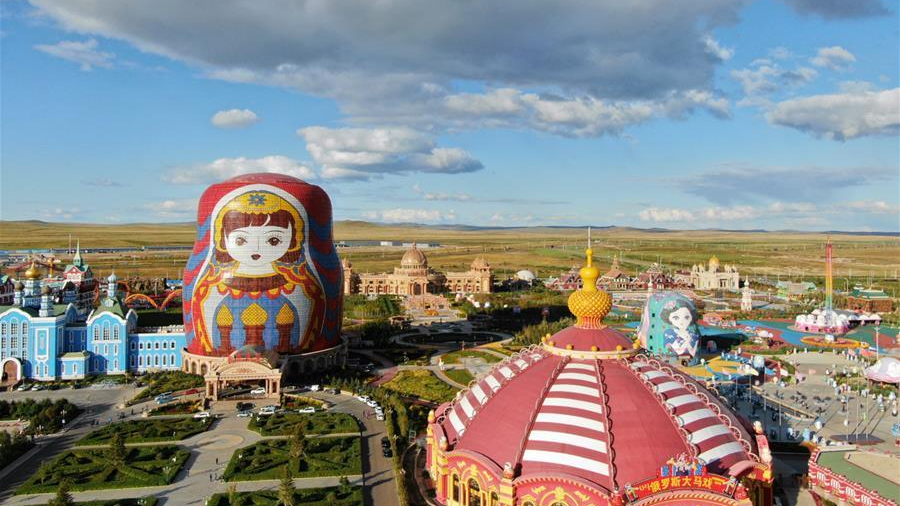By Bradley Blankenship
There's much talk these days about China potentially serving as a neutral mediator in peace talks between Russia and Ukraine, as Russia's military operation in Ukraine continues to dominate the global conversation.
Certainly, some in the West have made clear that this can and should take place, saying Beijing should take the lead in brokering a peace deal. Others have questioned China's neutrality. This has gone together with a string of headlines insinuating that China either knew about and failed to prevent Russia's operation in Ukraine or that it had a more active role – both of which are totally false.
China's position, like other countries such as India and South Africa, is one of neutrality. It is rooted in the principle of non-alignment, which was the same position as a majority of the world's countries and people in the bifurcation of the world that took place in the 21st century. Beijing has a clear interest in peace and stability, with a track record of fruitful relations with both sides.
The relationship between Russia and China is obvious. Both countries share a huge border, are irreplaceable trading partners and have now developed a comprehensive strategic partnership of coordination that is rooted firmly in maintaining the norms of international law. There is no doubt that the relationship between these two countries is extraordinarily important. However, that does not mean that the two are not distinct actors. In fact, independence is at the very heart of Beijing and Moscow's strategic partnership.

Manzhouli, a Chinese city bordering Russia, benefits from trade between the two countries and witnessed rapid economic and social development in north China's Inner Mongolia Autonomous Region. [Photo/Xinhua]
China and Ukraine also have deep ties, particularly economic ties, and a cursory look reveals that China has no interest in conflict there. China is Ukraine's biggest single trading partner, providing 14.4 percent of its imports and serving as a destination for 15.3 percent of its exports in 2020. China is also Ukraine's largest export market for arms, even purchasing a Soviet aircraft carrier from Ukraine and refitted it into its first aircraft carrier, Liaoning.
In addition to this, there are a number of sectors where the two have fruitful cooperation. In 2013, Ukraine became China's largest single supplier of corn. In the 2018-2019 season, Ukraine supplied over 80 percent of China's corn imports. China also became the top importer of Ukrainian barley in the period of 2020-2021.
In 2013, China's Xinjiang Construction and Production Corps signed a 50-year agreement with Ukraine's KSG Agro to lease 100,000 hectares of farmland for cultivation and basic conditions for pig farming.
As a member of China's Belt and Road Initiative (BRI), infrastructure and development are major areas of interest for China in Ukraine. China's largest agricultural conglomerate, COFCO Group, built a $75 million grain and oil transfer terminal at the port of Mykolaiv on the Black Sea in 2016.
The next year, Chinese engineers finished their upgrade of the Yuzhny port near Odessa – Ukraine's busiest international port. Two Chinese firms won a major contract to build Kyiv's fourth subway line that same year.
On renewable energy, there are a number of projects in the works that would see Ukraine propelled to a regional leader in the industry. The China National Building Material company already financed half the country's existing solar power capacity, owning 10 solar power plants.
Plans for the future are even more ambitious. For example, Power China's $1 billion wind farm project will see the construction of Europe's largest onshore wind facility. There's also a solar power array being built by China Machinery Engineering Corporation that will be Europe's third largest.
Ukraine's strategic importance for China is serving as "a bridge to Europe for Chinese business," as Ukrainian President Volodymyr Zelenskyy put it in his first phone conversation with Chinese President Xi Jinping in 2021. Since Ukraine has a free trade agreement with the European Union, it is natural that Ukraine serves as a key transit point for Chinese business.
China stakes out a coherent middle ground and stands firmly in support of peace in its diplomatic efforts. China's interests coincide directly with orderly, stable activity in Ukraine, Russia and the region. China wants to see and would stand to benefit from a Ukraine that serves as a bridge between the East and the West.
China's expansive ties with both sides in this conflict and its deep-seated interests in peace mean that Beijing is a suitable mediator in this conflict.
The author is a Prague-based American journalist, political analyst and freelance reporter.

 中文
中文



